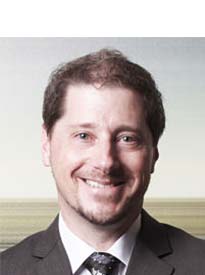As a wave of protectionism and nationalism has swept the developed world, from the U.S. to the U.K., it’s easy to get caught up in such parochial views in the hopes that the madness of the world around us will just go away. Although populist movements of nationalism and protectionism may continue to win fans at the grassroots level, the power and strength of multinationalism and globalization are too powerful to stop.
The financial services sector is going through unprecedented change and disruption. Leading the charge are two major forces: advances in digital technology (the advent of fintech, blockchain and distributed ledger technology [DLT]); and the pace and degree of regulatory change. Both of these disruptors are already having a profound impact on the entire industry, but nowhere is that impact felt more than in the client/financial advisor relationship and the nature of what a future “financial advisor” or “financial planner” will look like.
This is where global community comes in. As we watch disruptors take hold in Canada, it’s hard to argue that fintech and regulatory reform are not also global disruptors. Take the Canadian Securities Administrators’ (CSA) multitude of initiatives, from the second phase of the client relationship model to the proposed targeted reforms and the elimination of embedded commissions. It’s clear these initiatives are not taking place within the confines of Canada’s borders. CSA members are part of the global community, and their participation in the International Organization of Securities Commissions (IOSCO) combined with regulatory initiatives implemented in the U.K., Australia and the U.S. are clearly playing a major role in shaping the CSA’s thinking.
Likewise, fintech, blockchain and DLT will fundamentally change the way we do business, who we do business with and the role computers play in the process. The advances in technology are developing concurrently around the world and will redefine the financial services sector not only in Canada, but in every country, even developing ones.
Robert Reich, Bill Clinton’s former secretary of Labor, observed in 1991 that cultural globalization was creating a division within American society. He indicated that up to 25% of the U.S. work force belonged to a new class of “globalized professionals.” Reich concluded that these individuals were “much less likely to lose their jobs or to work in industries with falling wages.” Those observations are more relevant today than they were 26 years ago. Couple this with the losses in the workforce from technology advancement and it serves to reinforce the importance of exploring the world beyond our borders and becoming part of not only a global community, but a global profession.
In 2014, the global real estate industry established the International Ethics Standards Coalition (IESC) to develop and implement the first worldwide ethics standards for property and related professional services. Member organizations of this coalition agreed to work to create a new international standard, with “the ultimate goal that professionals will undertake their work in an ethically consistent way, regardless of where in the world they are located and the nature of their work.”
The IESC stated that the new standard “has the potential to transform the public perception of the entire … industry by creating and implementing international standards of ethical conduct … [which] in turn, will help to enhance confidence and stability in the global market place.”
Much like the IESC and IOSCO, the Financial Planning Standards Council also is part of the global community through its membership in the international Financial Planning Standards Board that collectively certifies almost 170,000 professionals worldwide as we all work together to build a strong, global profession founded on common international standards and principles.
This means looking at how financial planners and advisors in Australia and the U.K., for example, have weathered their regulatory storms and learned to thrive. It means exploring how financial planners in the U.S. are integrating fintech into their practices in a way that can enhance, not compete with, their value proposition.
This also means that individual financial planners are becoming part of a true, global profession that will enhance their credibility and provide strength in numbers.
I know of no profession that’s been built within borders. Now, more than ever, financial planners must also embrace their role in the global community of professionals and become part of a global profession.
